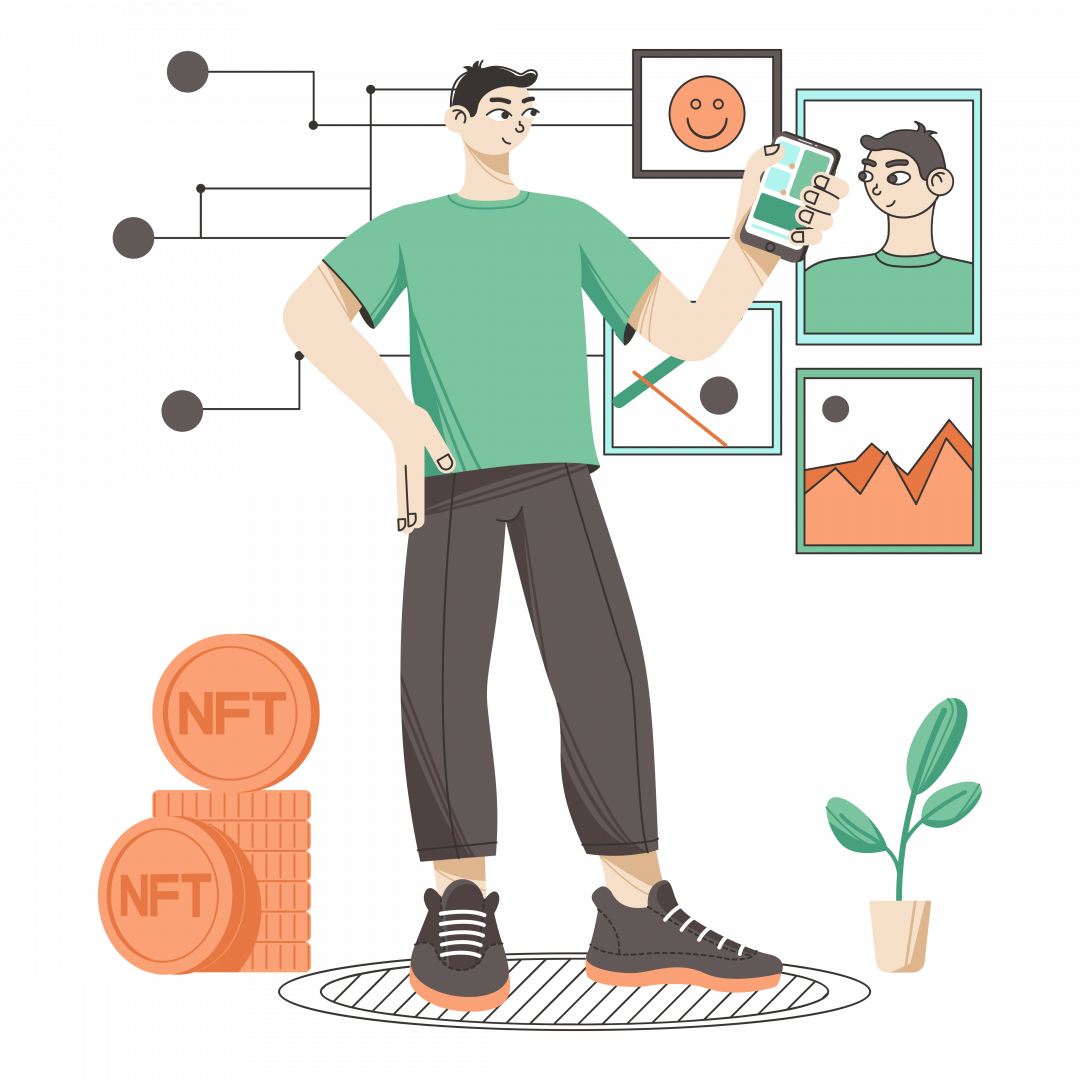Exploring the NFT Market: Empowering Artists and Investors in the Digital Era
Feltöltés dátuma:
The emergence of Non-Fungible Tokens (NFTs) has revolutionized the art and investment landscape, introducing new opportunities for artists and investors in the digital realm. This article aims to provide an in-depth understanding of how the NFT market works and the myriad of opportunities it offers to both creators and investors.
The Mechanics of the NFT Market
- Tokenization: NFTs represent unique digital assets, leveraging blockchain technology, predominantly the Ethereum blockchain. Artists or creators mint NFTs by transforming their digital artwork, music, videos, or other forms of content into individual tokens. Each token carries a distinct digital signature, verifying its authenticity and ownership.
- Ownership and Provenance: NFTs provide verifiable ownership and provenance by utilizing blockchain's decentralized ledger. The blockchain records each transaction, ensuring transparency and immutability. This creates a transparent trail of ownership history for each NFT, making it nearly impossible to counterfeit or manipulate.
- Smart Contracts: NFTs often incorporate smart contracts, self-executing agreements encoded on the blockchain. These contracts can automatically enforce certain conditions, such as artist royalties or the distribution of revenue from secondary sales. Smart contracts provide artists with ongoing control and the ability to earn royalties from subsequent transactions involving their NFTs.
Opportunities for Artists
- Direct Monetization: NFTs empower artists to directly monetize their digital creations, eliminating the need for intermediaries. By minting and selling NFTs, artists can reach a global audience and retain a more significant portion of the revenue generated from their work. This direct monetization mechanism can be particularly beneficial for emerging artists seeking recognition and financial support.
- Royalties and Secondary Sales: Through the use of smart contracts, artists can earn royalties from secondary sales of their NFTs. This feature enables artists to continue benefiting from the appreciation of their work in the resale market. The ability to earn ongoing income from subsequent transactions enhances the long-term value of an artist's NFTs.
- Exposure and Engagement: NFTs offer artists a unique opportunity to gain exposure and engage with a global community of collectors and enthusiasts. Social media platforms, online marketplaces, and dedicated NFT platforms allow artists to showcase their work, share their creative process, and connect with potential buyers. This increased visibility can lead to collaborations, commissions, and the expansion of an artist's network.

Opportunities for Investors
- Portfolio Diversification: The NFT market provides investors with a new avenue for portfolio diversification. By including NFTs in their investment strategy, investors can gain exposure to the growing digital asset market. NFTs offer unique investment opportunities beyond traditional asset classes, allowing for a more balanced and diversified portfolio.
- Potential for Appreciation: NFTs have the potential to appreciate in value over time. As the market evolves and demand for certain digital assets increases, investors can benefit from capital appreciation. Collectible NFTs, limited editions, or pieces from well-known artists can become highly sought-after, providing an opportunity for significant returns on investment.
- Support for Emerging Artists: Investing in NFTs allows individuals to support emerging artists and creators directly. By purchasing an artist's NFT, investors can provide financial backing, encouragement, and recognition. This symbiotic relationship between artists and investors fosters a sense of community and collaboration within the NFT ecosystem.
Conclusion
The NFT market has opened up a new frontier for artists and investors, redefining ownership and value in the digital era. Through tokenization, smart contracts, and blockchain technology, artists can monetize their digital creations directly, while investors can explore unique investment opportunities and participate in the cultural shift towards digital ownership.
The NFT market offers artists a platform for global exposure, direct engagement with collectors, and the ability to earn ongoing royalties. For investors, NFTs present a chance to diversify portfolios, support emerging talent, and potentially benefit from the appreciation of digital assets.
As the NFT market continues to evolve, it is crucial for artists and investors to navigate this space with caution and conduct thorough research. Understanding the mechanisms, risks, and potential rewards of the NFT market can help both creators and investors make informed decisions and unlock the vast opportunities presented by this groundbreaking technology.
Sign up for our newsletter!
Sign up for our newsletter to be the first to know about our latest projects and technological innovations.
Predicting Trends and Demand: The Power of AI in Inventory Forecasting
Inventory management is a critical aspect of any business, influencing costs, customer satisfaction, and overall profitability. Traditionally, inventory forecasting relied on manual methods and historical data analysis, often resulting in inaccuracies and inefficiencies. However, with the advent of Artificial Intelligence (AI) and machine learning, businesses now have powerful tools at their disposal to predict trends and demand with unprecedented accuracy. In this article, we'll explore the transformative power of AI in inventory forecasting and how businesses can leverage these technologies to optimize their supply chain operations.
Navigating Regulatory Compliance and Legal Considerations with Utility NFTs
As utility Non-Fungible Tokens (NFTs) gain traction across various industries, it's crucial for developers, businesses, and users to navigate the legal landscape and ensure compliance with regulatory requirements. While utility NFTs offer innovative solutions for ownership, access control, and digital asset management, they also pose legal challenges related to intellectual property rights, securities regulations, data privacy, and consumer protection. In this article, we'll explore the key legal considerations and regulatory compliance issues associated with utility NFTs and provide guidance on how to navigate them effectively.

















